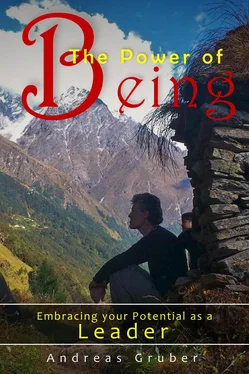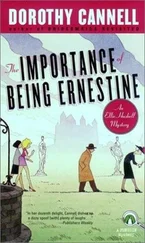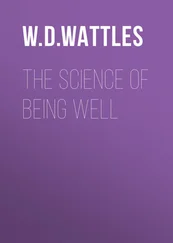It sometimes seems pathetic to talk about the necessity of having leaders who can look beyond themselves. While I was writing this book, I talked to some friends about leadership. A young lady who recently got promoted and is managing the finance department of a huge hospital, said to me: "Our director offered me to do a rather exclusive training in leadership. The topics are fascinating. I realize it would be good for my career too, but I can't see what's in it for the hospital so I will decline." Her mother said, "But if it's good for you, isn't that good enough?" I added, "I think both are good and justified views, but if you mean what you are saying, that you don't see what's in it for the hospital, implies that you are looking beyond yourself. You are willing to sacrifice something, for the benefit of the bigger picture. I believe that is true leadership. You should not be surprised if you get offered much greater positions in the future. These are the kind of leaders we need!"
Young people belonging to Generation Y have long been believed, not to be interested in taking responsibility, until studies showed that they do, but they have their conditions. I believe that sustainability is written in their hearts, the wish and necessity to make it work, for them and many generations to come.
(Generation Y (also known as the Millennial Generation) are the demographic cohort following Generation X. We usually refer to birth years ranging from the early 1980s to around 2000. In his book, Fast Future , author David Burstein describes Millennials' approach to social change as "pragmatic idealism," a deep desire to make the world a better place. Source: https://en.wikipedia.org/wiki/Millennials )
This young lady, born 1988, is one of them. What I met, was a very earthbound, no-nonsense, and intelligent young person, which seems to be ready to take on responsibility. There was no trace of esoteric, religious or philosophical approach in her statements. Just applied common sense or practical wisdom. The leaders of the future are waiting around the corner. There is no doubt in my mind that there are more than one of that kind, namely to be able and willing to look beyond themselves for the benefit of the bigger picture.
Belonging to an earlier generation, the baby boomers, I have to realize that this is the generation of my kids. Would I help them to preserve their habitat? Yes, I would, and I will. Either we do it for us, for our children or the sake of it. I believe, that to do it for our children is the most credible, because if we are not even willing to honor something that is holy to us, as in the case of the polluted holy rivers, we are not likely to do it for the sake of it either.
"Let him that would move the world, first move himself."
Socrates
Leaders and politicians can be like father figures. When I was young I was always looking for such a person, a guide in life, a mentor. In the autobiographic movie “Mandela: Long Walk to Freedom” (2013) there is a scene that comes to my mind. President F.W. de Klerkrealized that the riots could not be stopped unless he released Nelson Mandela from prison and announced elections. The people elected Mandela, but the riots still did not stop. Black killed white, and the other way around. There was chaos in the country. Mandela spontaneously went to give a speech on television. As his speech was broadcasted, the fighting stopped.
People don't like to be told what to do, but when we hear the truth from somebody who is truly credible, someone we trust, a person with high integrity we do listen. Mandela had all that, trust, credibility and integrity. With his words, he ended the unrest, which the police and military had not been able to stop with force, for years. A person without these qualities can’t achieve that miracle.
A true leader has an intuitive understanding that life isn't about himself; it's about the collective, the bigger picture. This is the ultimate criteria for being human, but also for being a leader. There is nobody who would expect you to be like Nelson Mandela, and yet we all have that potential.
"The superior man always thinks of virtue; the common man thinks of comfort."
Confucius
The opposite of serving others would be to serve only yourself. Altruism vs. Self-centeredness. I find this to be a rather misunderstood topic, especially when it comes to the ego. Therefore, the ego will be elucidated separately.
The ego is not only about being self-centered, but it is also very much about willpower and how we make proper use of it. As a leader, you need a lot of willpower at times and less on other occasions. Your ego has the power to look after yourself. Virtually nobody, living an ordinary life in society, can survive for very long, without some ego. So-called spiritual people often hit hard at ego, but mostly I find, it serves nobody to generalize. Looking at the other side of the spectrum, we come to altruism.
"Altruism is when we act to promote someone else's welfare, even at a risk or cost to ourselves. Studies have found thatpeople’s first impulse is to cooperate rather than compete;that toddlers spontaneously help people in need out ofa genuine concern for their welfare. Darwin's claim (that altruism, is an essential part of thesocial instincts), is supported by recent neuroscience studies,which have shown that when people behave altruistically,their brains are active in regions that signal pleasureand reward, similar to when they eat chocolate.
This does not mean that humans are more altruisticthan selfish; instead, evidence suggests we have deeplyingrained tendencies to act in either direction.Our challenge lies in finding ways to evoke thebetter angels of our nature." ( http://greatergood.berkeley.edu/topic/altruism/definition )
What would Mandela or Gandhi have been like, if they wouldn't have understood their impact? They may never have achieved their goal without that awareness, because they would have behaved differently. A Gandhi without the awareness of his own impact, would probably not have used every moment so consequently. He may have gone round in circles a little bit more as the rest of us do. He might have been an excellent man, but a man without a compass.
To understand our impactwe must look at the bigger picture.
What do you see, when observing people who don't see the bigger picture of a task or project? You are likely to experience people who need constant guidance, people who cannot see their own or other’s contribution. They are likely to use their skills on the wrong occasion, or even in the wrong way. Seeing the bigger picture is critical to be able to give your contributions with the right timing and quality. Otherwise, we are wandering aimlessly. That is probably not what you wish for yourself.
If it's true that being aware of our impact has such far reaching effects, why don't we apply it then? There may be multiple reasons for that, one of them being that employees may become too good, and start thinking for themselves. Sometimes they’ll even excel you and leave for new challenges. In single cases, it may cause you a slight problem, but overall there will be mostly benefits for you and the company. Some may fear it's like opening Pandora's Box, which according to mythology unleashed trouble, and mostly that's because they never actually tried it.
But at this stage, it's not about everybody else. Looking realistically at the situation, you need to start with yourself. And the question may not be, if you have a bigger picture or not, because I'm sure you have. The question may be, how big a picture you can take in and still see yourself as a part of it? That is probably the main criteria, because if you can't see yourself in a global or a national perspective, you may need to find your frame of action and keep on questioning that.
Читать дальше












